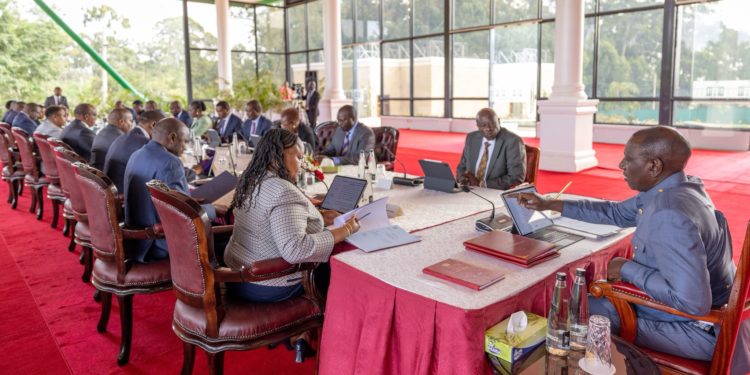The Kenyan government has announced plans to sell off the Development Bank of Kenya (DBK) and five state-owned hotels as part of its efforts to revitalize the economy and reduce public debt.
The cabinet, chaired by President William Ruto, approved the proposed privatization of DBK on Wednesday, citing its successful transition into a fully-fledged commercial bank regulated by the Central Bank of Kenya (CBK).
The cabinet also sanctioned the divestment of five non-strategic hotels, namely Kenya Safari Lodges and Hotels Limited, Golf Hotel Limited, Sunset Hotel Limited, Mt. Elgon Lodge Limited, and Kabarnet Hotel Limited.
The move is expected to stimulate the expansion of the country’s hospitality industry and attract private sector investment, as well as create more jobs and business opportunities in the tourism sector, which has been recovering from the impact of the Covid-19 pandemic.
“As part of the Administration’s plan to steer the turnaround of our State Corporations and other State Owned Enterprises by unlocking their potential and securing the best value for the public, Cabinet considered and approved the proposed privatization of the Development Bank of Kenya (DBK),” the cabinet despatch read in part.
“The decision by our nation’s apex policy-making organ was informed by the fact the Bank had fully transitioned into a fully-fledged Deposit-taking commercial bank regulated by the Central Bank of Kenya (CBK).”
The despatch added that the divestment of the five hotels was in line with the ongoing rebound of the tourism sector, which has been buoyed by the visa-free entry regime in Kenya.
“These divestitures are expected to stimulate the expansion of our nation’s hospitality industry and grow the individual units through private sector investment,” the cabinet said.
The cabinet did not disclose the expected revenue from the privatization of DBK and the hotels, nor the timeline and process for the sale.
However, the government has been under pressure to reduce its fiscal deficit and public debt, which have soared in recent years due to increased borrowing.
The government has also faced criticism for its management of some state-owned enterprises, which have been plagued by inefficiency, corruption, and poor performance.
The privatization of DBK and the hotels is part of the government’s broader reform agenda to restructure and revamp the state-owned sector, which comprises over 200 entities in various sectors, including energy, transport, agriculture, and manufacturing.
The government has also identified other state-owned enterprises for possible privatization or restructuring, such as Kenya Airways, Kenya Power, Kenya Ports Authority, and Kenya Pipeline Company.
















